2023 Lu Shui Tang Ancient Tree Raw Pu Erh Tea Cake 200g
2023 Lu Shui Tang Ancient Tree Raw Pu Erh Tea Cake 200g
Couldn't load pickup availability
A raw pu erh tea cake made from tea leaves harvested from ancient trees surrounding the Lu Shui Tang village in the Mengku tea region.
This tea offers a thick and smooth texture and opens with a honey-sweet, floral bouquet. The first few steeps also feature hints of herbs, which matures mid-way through the session into a complex palette of spices. In the late steeps, where the aroma softens, the tea is sweet and leaves behind a refreshing, minty sensation on the finish.
Powerful Cha Qi
In addition to its delicious flavour, this tea possesses powerful tea energy (cha qi), which improves mood, enhances mental clarity, and promotes relaxation for a meditative state of mind.
The Final Station of our Mengku Voyage
In 2022/2023 our pu erh tea sourcing efforts were focused on the Mengku tea region, known for its vast ancient tea forests. After visiting 10 villages and 13 tea gardens, and tasting over a hundred teas, we've selected only the best material to become part of our in-house tea cake selection.
As a result of our Mengku tea region exploration, we previously launched our Ba Nuo and Zheng Qi Tang tea cakes. Now, with the Lu Shui Tang cake, our journey through Mengku comes to an end. This premium cake is beloved by the entire Teasenz team, and we are excited to share it with you.
Lu Shui Tang
Lu Shui Tang is a tiny village that falls under the jurisdiction of the nearby larger village called Dongguo, located west of the river in Mengku. At an altitude of about 2300m above sea level, the village is surrounding by nature and clouds.
Premium Processing
Every processing step involved to produce this cake is executed with great care.
- Manual processing: The tea leaves were handpicked and manually processed during the end of September 2023. This is why you won't find many broken leaves in our tea cake.
- Aging in loose form: While most pu erh teas are directly compressed into cakes, Teasenz' signature process involves initial storage of the tea leaves in loose form. This allows for uniform initial aging and faster accumulation of aroma. While many producers avoid this step to save cost and storage space, we believe this results in a superior product.
- Steaming and stone-pressing: In the middle of January 2024, the tea leaves are steamed and stone-pressed into round cakes.
- Double wrapping: Once the cakes are carefully dried, they are wrapped in two layers of paper to allow for optimal further aging. A set of 5 cakes are then wrapped in 'tongs' using sustainable bamboo sheets to protect the cakes during transportation.
Origin
Origin
- Origin: Lu Shui Tang village, Mengku, Yunnan
- Harvest: Autumn 2023
- Total harvest quantity: 40kg (200 cakes)
- Picking method: hand picked
- Compression: Loosely stone-pressed in Jan 2024
- Tea type: raw pu erh tea
- Tea shape: tea cake
- Weight: approx. 200g
How to Steep
How to Steep
Traditional steeping method
We recommend to steep 5 grams of this tea with 100ml of water at 95ºC for 10 seconds for the first 5 steeps. Afterwards, gradually increase the steeping time.
Western steeping method
For Western steeping, we recommend to steep 4 gram of tea leaves with 500ml of water for 1.5 minutes. For the second and third steep, apply a 2.5 and 4 minute steeping time, respectively.
Shipping, Returns & Payment Methods
Shipping, Returns & Payment Methods
Delivery time: 1-10 day EU delivery. For estimates per country, please visit the shipping info page at the bottom of our website.
Import taxes?: because we ship from our EU warehouse, you will NOT be charged import taxes upon delivery if you're based in the EU. All taxes are already included in our prices.
Free shipping: available for orders over €59 for The Netherlands/Belgium, €80 for other EU countries (excluding Portugal & Hungary) & UK, and over €100 for other countries.
Returns: orders can be returned for a refund within 30 days. Products should returned in unopened, unused condition.
Share












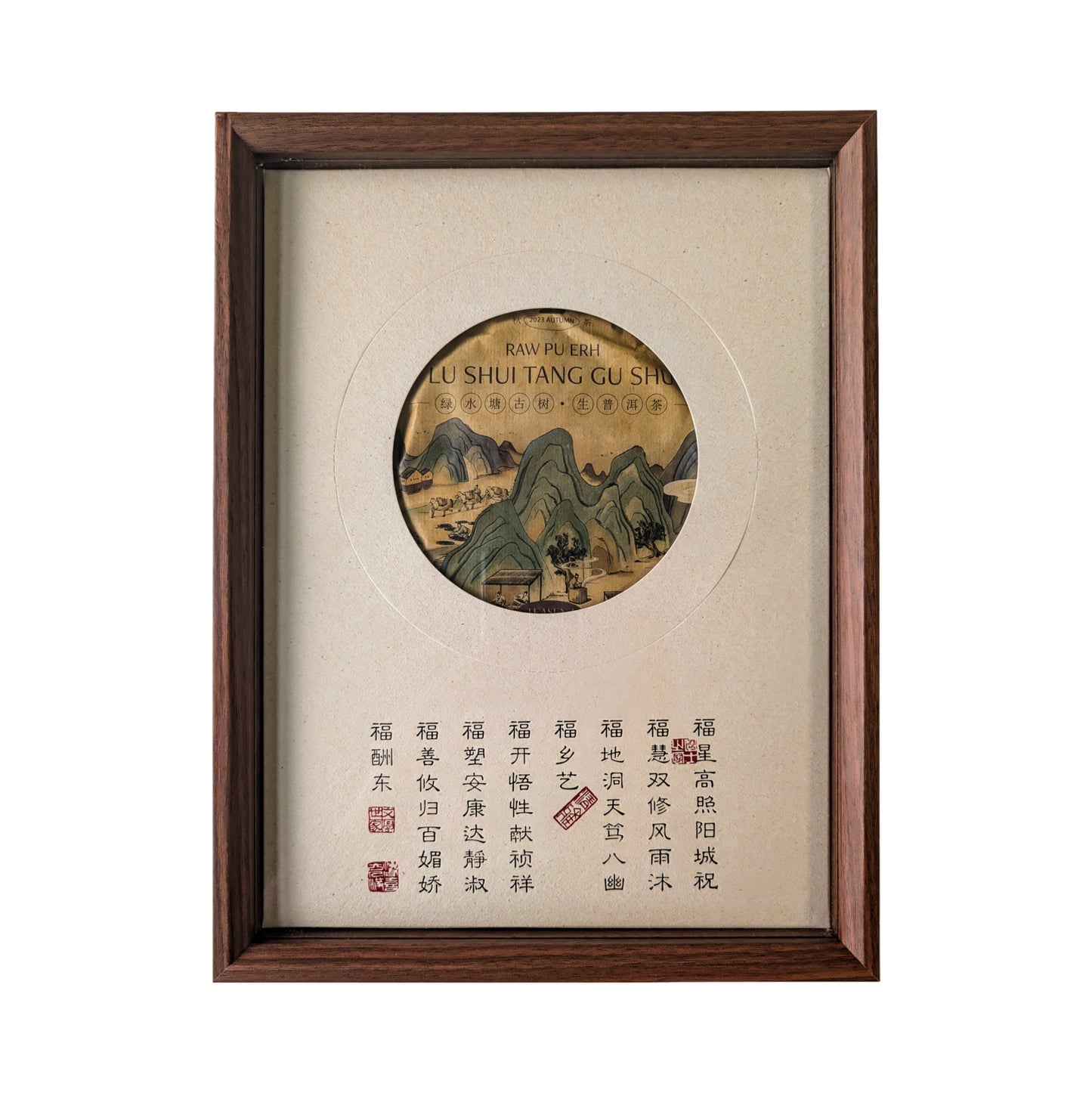
How this raw pu erh tea is made
-
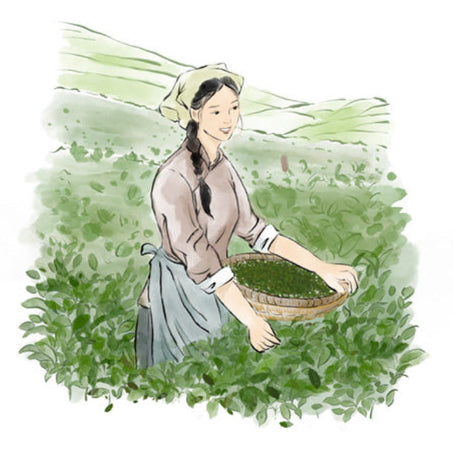
Picking
Tea leaves are hand-picked in the morning.
-
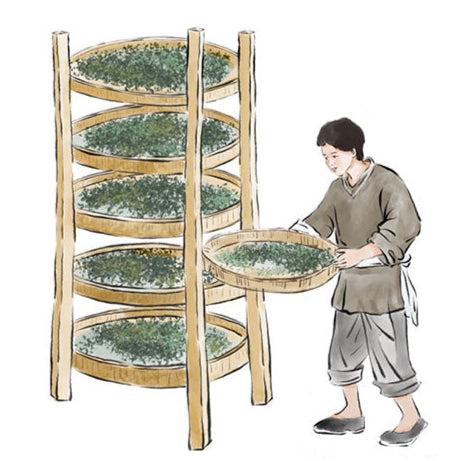
Withering
The leaves are spread on bamboo trays to wither.
-
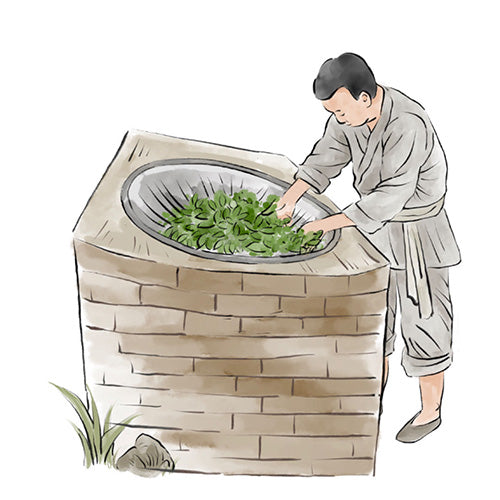
Fixation
The withered leaves are heated to halt oxidation.
-
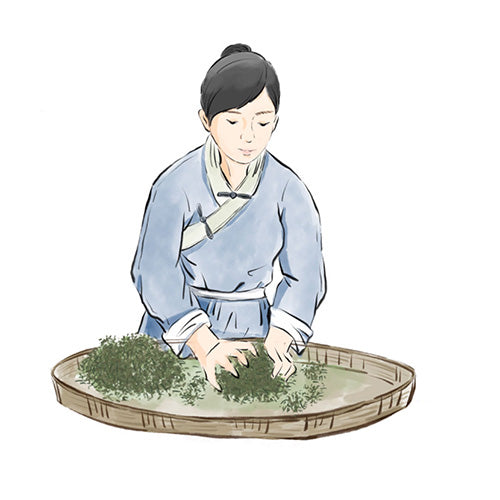
Rolling
The tea leaves are rolled to release their aroma.
-
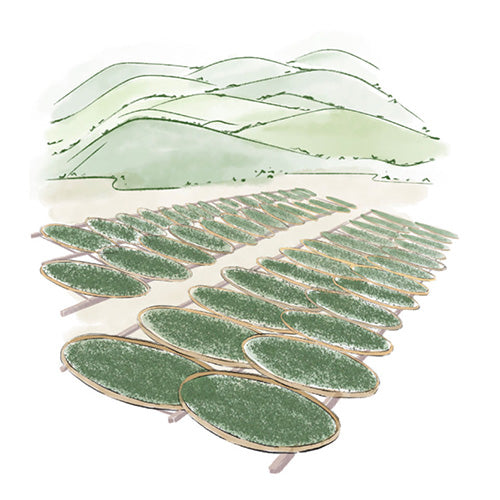
Sun Drying
Rolled leaves are spread on bamboo mats to sun-dry.
-
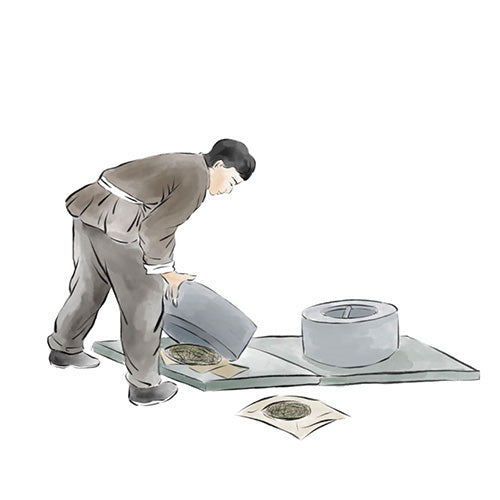
Pressing
The processed tea leaves are steamed & compressed.
-
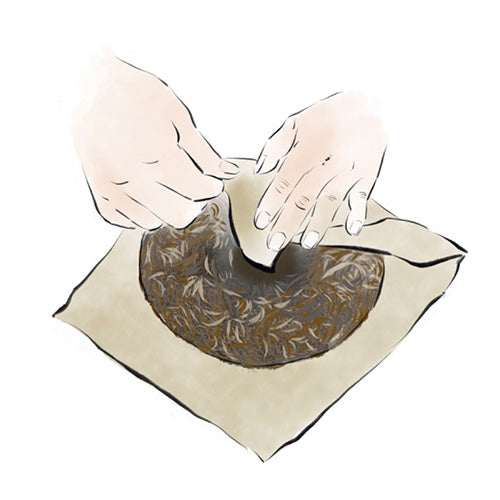
Packaging
The compressed tea is wrapped in paper & packed in boxes.
-
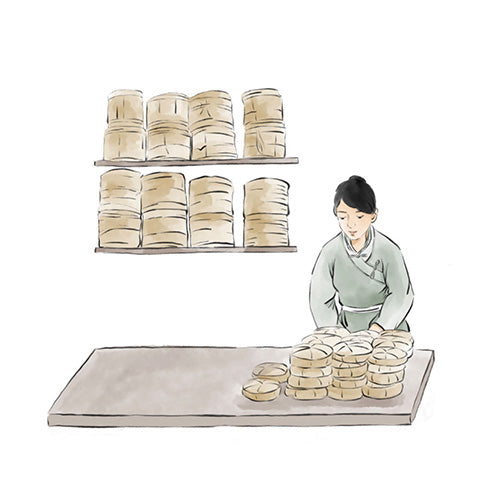
Aging
The raw pu erh tea is stored for further aging.
Delicious sheng puerh. The leaf material is beautiful and the cake compression is not too heavy making it great to get the leafs out of there without breaking them. The tea has a thick texture and drinks away easily. Gives a great relaxing feeling. Price wise it's on the higher level for 200 grams but besides that I would definitely consider ordering it again.
Great tea for a reasonable price. Fruity notes of peach with a hint of joghurt. It could be a bit more adstringent, but It´s worth it´s price
Came to this tea from the Shen Puer Sample kit. Out of all teas in set this one is the most delightful!
Unlike any other raw puerhs of the set this one does not have that ‘ripe fruit’ distinctive note and behaves more like a green tea. Mind you, it does has this plum/fruity note in smell sometimes, especially in the first steeps, but mostly is has a unique green tea bitterness and very rich fragrant bouquet.
I especially love the balance of this tea in smell and taste. As the taste is full and bitter, the fragrance sometime is pure sweet honey or berries. I was actually surprised on how wonderful this aroma is. And I am in love how it slightly changes a bit from time to time. Generally it has a very fresh profile that I liked the most out of all the sample set. It leaves my mind focused and crispy without overwhelming and distracting my senses. I choose it on a working day to actually work.
So if you are looking for a traditional, classic shen puer you might look for some other one. But if you like green teas (and I think most beginners tend to like them more aver heavy stuff) this is the right choice.



















